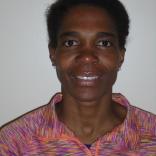
Growing up first in a military family in different states around the country, including Hawaii, then in a small town in Montana, where my city-bred parents forged a new life for us as back-to-the landers, and later on a scholarship at an east coast boarding school, I had ideas early on about place, connection, and belonging and not belonging.
Following one fairly nebulous calling to “be of service” and another clearer one to see the world, I lived and worked for years in Africa, first in West Africa with Catholic Relief Services and later with the World Wildlife Fund in Central Africa. My experiences in Africa over the course of more than a decade taught me many things about livelihood, connection to the land, and stewardship of that land. Living and working in Africa also taught me about accountability for my work, surfacing in me a desire to work closer to home, where I would be pushed more to link my own destiny with that of people with whom I was working.
When marriage to a Louisianan brought me to the American South, a place I’d never been and that felt in many ways as foreign as Africa, I was surprised to find threads of familiarity. The accents, the rhythm of speech, and mannerisms of rural folks reminded me of my grandparents, who, prior to moving north with many of their counterparts during the Great Migration, had grown up in the rural south. While I am by no means an insider, my connection to people, history, and land in the south is undeniable.
My work (in the U.S. and Africa) has been to help build capacity in issues related to community development, community change, and natural resources management. I do this by helping to strengthen organizational infrastructure that supports communities in developing visions for their aspirations and practical plans for achieving those visions in the most inclusive ways possible. It is in these communities that I have learned that the main indicators of good work on my part, whether conservation, community development, or anything else, is that people—mostly African Americans of modest means—experience connection to the work and each other, improvement in their lives, and a sense of belonging in their place.


